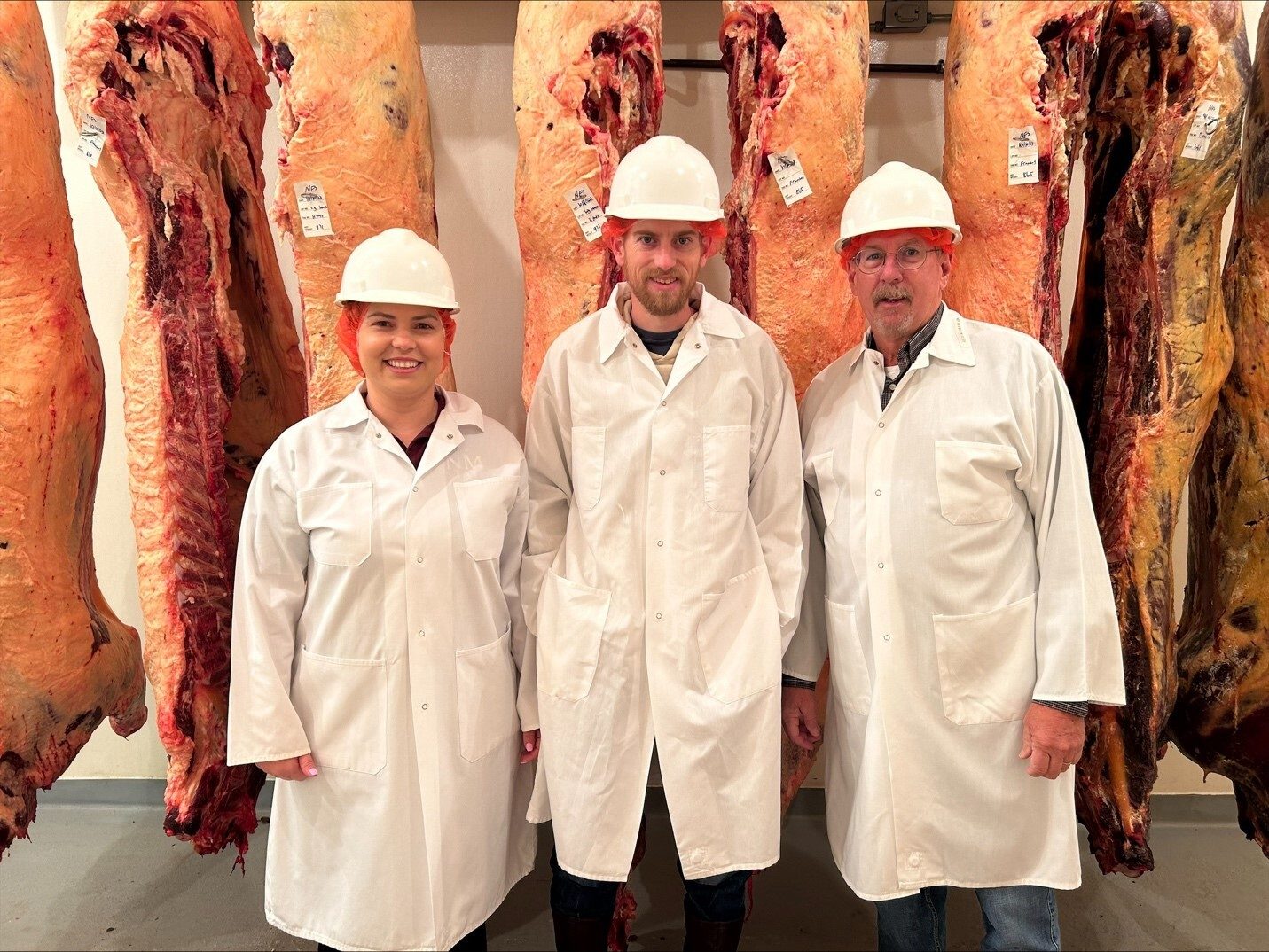
commentary
SOUTHWEST MEAT ASSOCIATION
All’s fair in
labeling?
Legislators and regulators weigh labeling regulations addressing country of origin and meat analogs.
By Lacy Bates
Last summer, I published an article outlining eight acts before Congress that every meat processor should be aware of. You can read the article here. All of the acts listed are still before Congress. Now, whether they excel is to be determined. Two of the eight acts are centered around truth in labeling. So, what progress has been made regarding labeling?
HR 1604 USA Beef Act and FSIS Product of USA Claims
H.R. 1604 USA Beef Act was introduced in the House of Representatives on March 2023. The bill would prohibit the label of beef or beef food products from bearing the phrase “Product of USA”unless such beef is exclusively derived from one or more cattle born, raised, and slaughtered in the United States. Today, HR 1604 is still before the House Committee on Agriculture.
In March 2023, the US Department of Agriculture’s Food Safety Inspection Service finalized the rule Voluntary Labeling of FSIS – Regulated Products with U.S. Origin Claims.
Under the FSIS rule, single-ingredient products that are eligible for the “Product of USA” claim must be derived from animals born, raised, slaughtered and processed in the United States. Multi-ingredient products include all FSIS-regulated components derived from animals born, raised and slaughtered in the U.S. and all additional ingredients, except spices and flavorings, are of domestic origin. Again, this is a voluntary claim for all FSIS inspected products, whereas the USA Beef Act if passed would make the claim mandatory on beef and beef products.
H.R. 7130 & S. 3693 FAIR Labels Act of 2024
Sponsored by US Rep. Mark Alford, R-Mo., and Sen. Roger Marshall, R-Kan.
The FAIR Labels Act was introduced in January 2024. Its purpose is to amend the Federal Meat Inspection Act and the Poultry Products Inspection Act to ensure that consumers can make informed decisions in choosing between meat and poultry products and imitation meat and imitation poultry products, and for other purposes.
What does this mean regarding labeling?
Manufacturers of products not derived from beef, pork, poultry or catfish that was harvested in a USDA facility would need to include the terms ‘imitation’, ‘cell-cultured’, or lab-grown’. Therefore, all cell-cultured and plant-based products are under scrutiny.
What terms should be used on certain products?
The term ‘imitation’ meat and poultry products would refer to food products manufactured to look like meat and poultry products but which are derived from non-meat and poultry substitutes, such as plants. All cell-cultured meat and poultry products would be required to include the terms “cell-cultured” or “lab-grown” prominently on the label.
If passed, what agency would regulate the food labels?
According to the FAIR Labels Act, the USDA would become the sole arbitrator of the label pre-approval process like with any other meat and poultry product label. The Federal Meat Inspection Act and Poultry Products Inspection Act require meat and poultry products to receive pre-approval from the USDA on labels prior to the product entering commerce. However, the FDA does not have a pre-approval label process for products. Therefore, under the FAIR Labels Act manufacturers of “imitation,” “‘cell-cultured” or “lab-grown” products would need to account for additional process of submitting labels to the USDA for pre-approval. Currently, FDA and FSIS have joint jurisdiction for cell-cultured products. FSIS is currently developing a proposed rule on the labeling requirements for cell-cultured products and will ensure that labels are not false, misleading or misbranded to the consumer.
How would this affect the states who have passed similar legislation?
Numerous states in the United States have developed independent alternative meat labeling legislations. These states include Alabama, Arkansas, Georgia, Kansas, Kentucky, Louisiana, Maine, Mississippi, Missouri, Montana, North Dakota, Oklahoma, South Carolina, South Dakota, Texas, Wyoming and most recently Iowa. While each of these states have differing legislation, all agree that there should be additional labeling requirements on alternative meat products. Although the FAIR Labels Act does not address these individual state legislations, when a state law interferes or conflicts with a federal law, the state law is overruled by the federal law. As a result, the FAIR Labels Act would be enforced over the state law.
Additional legislation?
There is a sister bill also before Congress, S. 3281 Real MEAT (Marketing Edible Artificials Truthfully) Act of 2023, sponsored by Sen. Deb Fischer, R-Mo. The Real MEAT Acts would amend the Federal Food, Drug, and Cosmetic Act to ensure that consumers can make informed decisions in choosing between meat products such as beef and imitation meat products, and for other products.
Southwest Meat Association will continue to monitor legislative actions and assist meat and poultry processors in any way necessary.
Opening image credit: GettyImages / Juanmonino / iStock / Getty Images Plus

